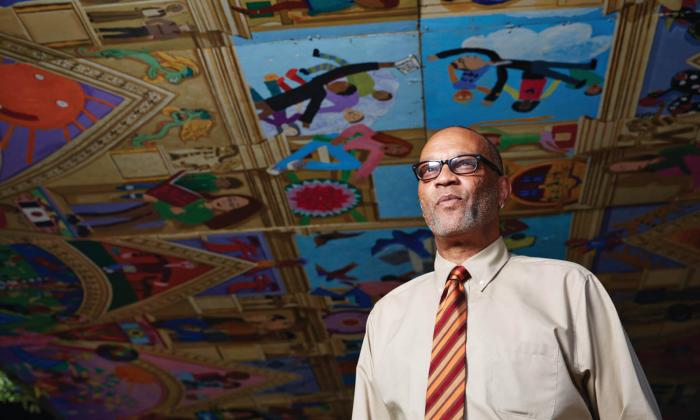Manuel J. Fernandez caught the education bug in the early 1970s while working with youth as a community organizer and through a voluntary racial-imbalance busing program in Massachusetts. These early experiences set him on a career path that has been devoted to equity and culturally responsive education.
You’ve been the only man or person of color in most of the schools or districts you’ve worked in. What has that been like?
I saw things that other people didn’t see. So it struck me that, “Wow, folks are really off the map when it comes to issues of equity around race and culture.” I can say most earnestly that in all the years I’ve been in education, very seldom have I met educators who didn’t care about children and who didn’t really want to do their best for them. But I’m never surprised at how little they know about the children who sit in front of them. The challenge for me and other administrators—and other people who have the sense of an expanded lens of understanding about what children need when they walk into a classroom—is we have to challenge people to reach beyond their own understanding and reach beyond their own life’s journey and experiences to see these children for who they are and what they bring to a classroom and a curriculum. Because they actually build the curriculum—and how we develop the right interventions and instructional practices to respond to them.
How do you set the stage for potentially tough professional-development sessions around issues of race, diversity and social justice?
That’s the crux of the issue in the United States: We don’t talk about race until we’re angry. Who ever knows what they’re talking about when they’re angry? And so we cause more problems. We don’t create an opportunity for people to have these conversations regularly. So in previous schools, I tried to use humor. There are some people who are not going to get the joke, some people who are never going to invite you to have that conversation. They’re just going to be polite because that’s who they are. But there are other people who, if you give them an opportunity to laugh, it relaxes them and once they relax, they can hear you and they might even be able to come closer to the table on that topic.
What’s your advice for other administrators who want to create more culturally sensitive school environments?
Talk to your students. While doing lunch duty one day, I ended up having a conversation with nine eighth-grade girls, and before I knew it, I was talking to a young lady who came here from Nepal [and] another young lady who came here from Brazil. Out of those nine girls, seven of them were born in another country. All of them spoke two languages; most of them spoke three. And I asked them, “What is [it] like being who you are in this community, from when you were little? … I mean, this is beautiful. Look at all the diversity at this table.” … I learned so much from them about what we need to be doing, how we need to look beyond the black-and-white matrix and the Latino/Asian matrix and start looking a little deeper at what these youngsters are bringing to the table every single day. And so I would say to my colleagues in administration, get in the cafeteria, get into the classrooms, get on the playground, get wherever you need to go. Be transparent with our young people about the world we’re in, the world that they’re facing, the skills they’re going to need, the diversity that they should be so delighted about. Listen to the young people, and you’ll find your way.
Manuel J. Fernandez is the head of Cambridge Street Upper School in Cambridge, Massachusetts.
Know an excellent administrator, librarian or counselor we should interview?
Tell us all about them.


0 COMMENTS